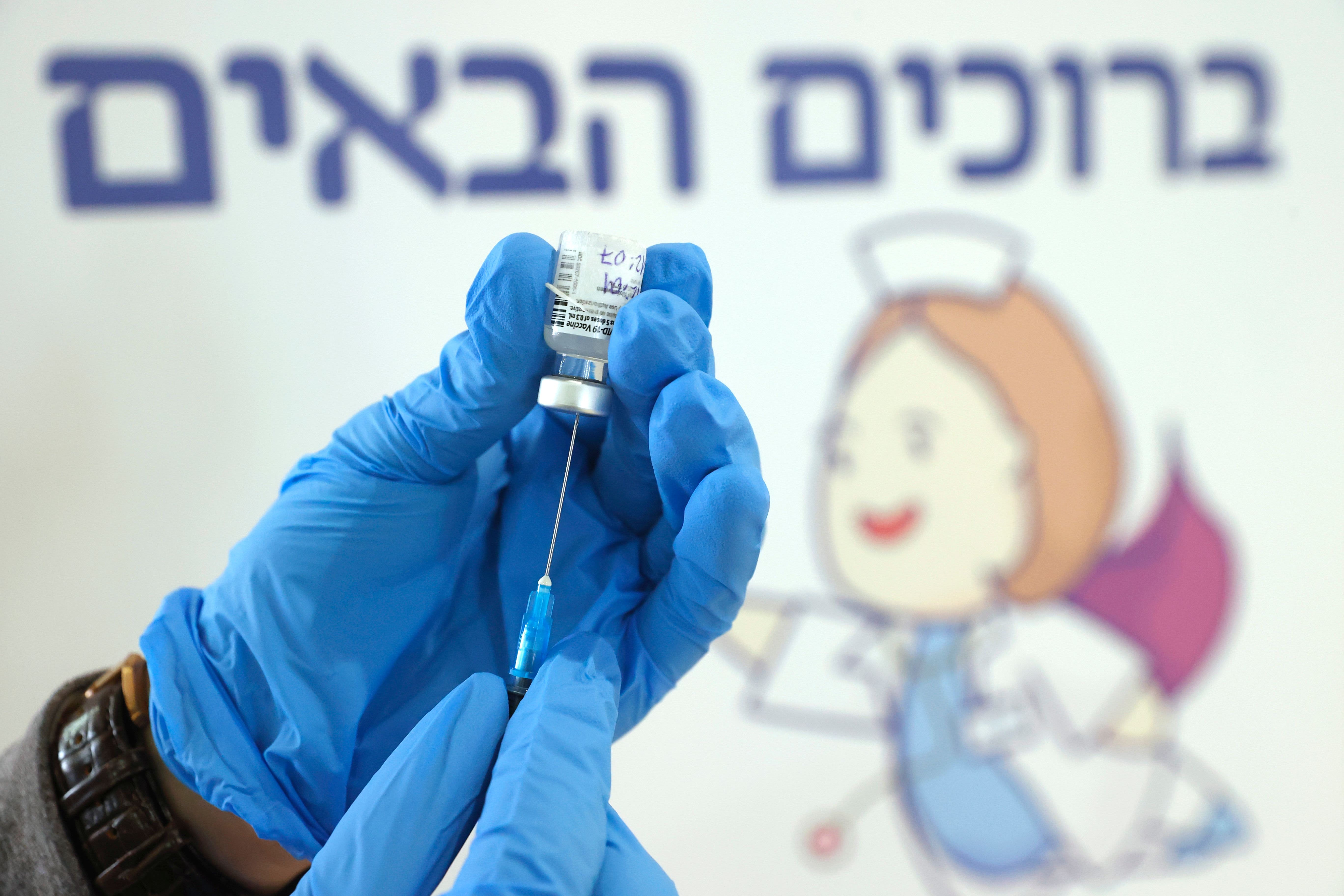
An Israeli health worker from Maccabi Healthcare Services is preparing to administer a dose of the Pfizer-BioNtech vaccine on February 24, 2021 in Tel Aviv.
Jack Guez | AFP | Getty Images
Data from Israel, which has vaccinated the vast majority of its elderly population with the Pfizer Covid-19 vaccine, suggests mass vaccinations have prevented people from becoming seriously ill, according to a new study from the Centers for Disease Control and Prevention.
While clinical trials have shown the Pfizer-BioNTech vaccine to be 95% effective in preventing Covid-19, the Israeli data provides an early glimpse of how effective the vaccine is in an uncontrolled, realistic setting.
The study, published Friday in the CDC’s Morbidity and Mortality Weekly Report, found that among the portion of the Israeli population most vaccinated, the percentage of patients requiring ventilation dropped dramatically, indicating a decrease in severe diseases.
“Taken together, these results suggest reduced rates of severe COVID-19 after vaccination,” wrote researchers from Ben Gurion University of the Negev, Tel-Aviv University and Maccabi Healthcare Services.
Israel launched its national vaccination campaign in December, prioritizing people 60 and older, health workers and those with comorbid conditions. In February, the researchers said 84% of the population aged 70 and older had been fully immunized with the two-dose Pfizer-BioNTech vaccine. Only 10% of the population under 50 had been vaccinated by the same time, the researchers said.
The researchers compared the number of Covid-19 patients aged 70 and older who needed a mechanical ventilator with those younger than 50 who needed a ventilator. The researchers said they used the need for a ventilator, a medical instrument used to help patients breathe, to measure severe Covid-19.
Between October and February, the number of patients aged 70 and older who required artificial respiration fell. At the same time, the number of people under 50, a population that was generally unvaccinated and needed a ventilator, rose, the study found. The country began administering injections to mostly older people on December 20, and a second round followed three weeks later.
The researchers noted a few limitations of the study. Israel introduced a strict national home requirement on Jan. 8, weeks after the vaccination campaign began, which could have resulted in a decrease in the number of critically ill patients who would have required ventilation equipment. The introduction of new variants of the coronavirus could also have affected the data, they said.
The researchers said their findings are preliminary, “important evidence of the effectiveness of vaccines in preventing serious cases of COVID-19 nationally in Israel.”
“The receipt of COVID-19 vaccines by eligible individuals may help limit the spread of disease and potentially reduce the incidence of serious diseases,” they wrote.